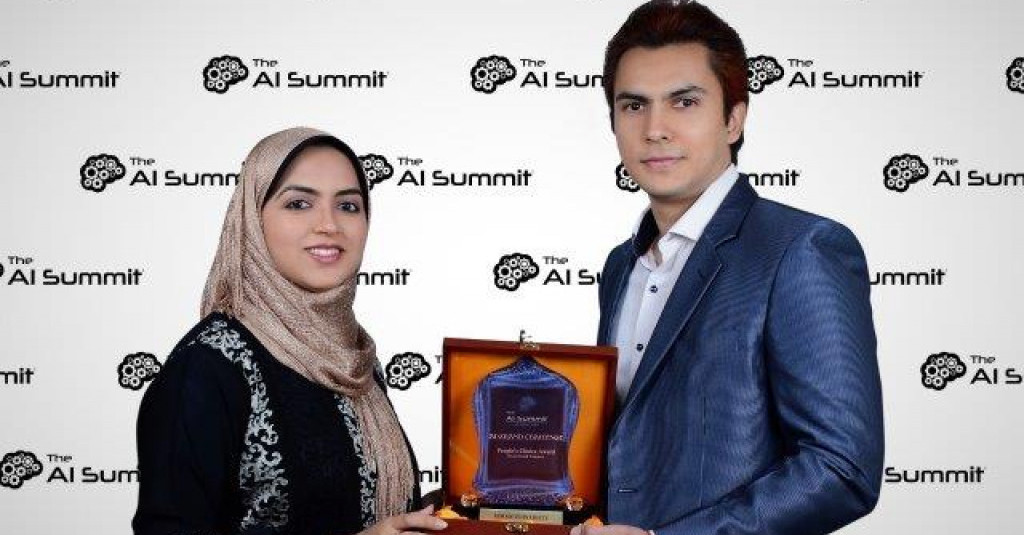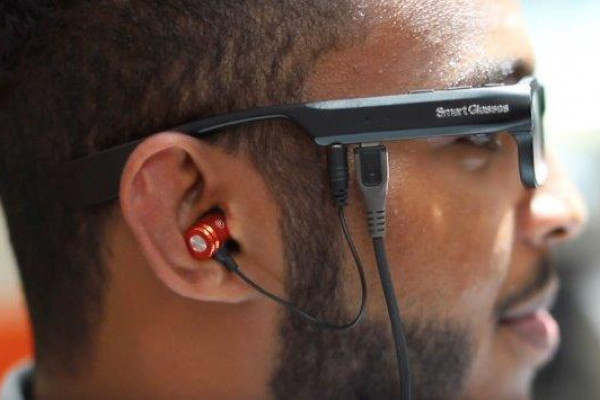AU Engineering Team Honored for “Sense7” Project at A.I. Summit

Visually impaired people need not to worry anymore about communicating with others with this pair of pioneering smart glasses that can turn visual stimuli into auditory instructions.
An engineering team from Ajman University (AU) emerged from the “A.I. Grand Challenge,” held recently in Dubai, with the “People’s Choice Award” in the category of Artificial Intelligence for Social Good.
AU Chancellor Karim Seghir said the system enables visually impaired people to participate in mainstream education and develop vocational skills.
“Along with top honors, Sense7 was awarded with high-profile tech internships worth USD $35,000 to have the prototype developed further.”
Sense7 has the potential to make a major impact on society, he affirmed. “We are so proud of this team for putting science and skill to work for the greater good.”
The project is the embodiment of Ajman University’s core values of compassion and innovation, he underlined. “Social responsibility has always been an integral part of the University DNA since its inception 31 years ago.”
Participants in the A.I. Grand Challenge represented more than 80 countries and included researchers from such global companies as Rolls Royce, Harvard Innovation Lab, Google, Facebook, Huawei, Stanford University and Shell.
Each entry was required to demonstrate AI-based solutions in one of five categories: security, healthcare, social good, business or education, Dr Seghir said. “Each project received two rounds of assessment by international A.I. experts from industry and academia.”
Judges and audiences alike expressed admiration for the comprehensive array of solutions offered by Sense7, especially in the areas of spatial awareness and indoor navigation.
“These two features are of great importance in providing independence for the visually impaired and inclusion into mainstream society.”
Several studies have confirmed that isolation affects mental and physical health, leading to cognitive decline and neurological problems,” explained AU Engineering Lecturer Tazeen Sharif, who developed the project with fellow alumni Sameer Sharif and Shahin Basiratzadeh.
Sense7 has been tested successfully in vocational training sessions with blind individuals, which could eventually help them enter the workforce, he added.
“Sense7 is to assist a greater population of the visually impaired in the near future,” he hoped.
In 2018, Sense7 earned top honors in the regional category of the QS Reimagine Education Awards – considered the “Oscars” of teaching and learning – in San Francisco, California. Of more than 1184 entries, only 17 including Sense7 earned distinction in the prominent global competition.
